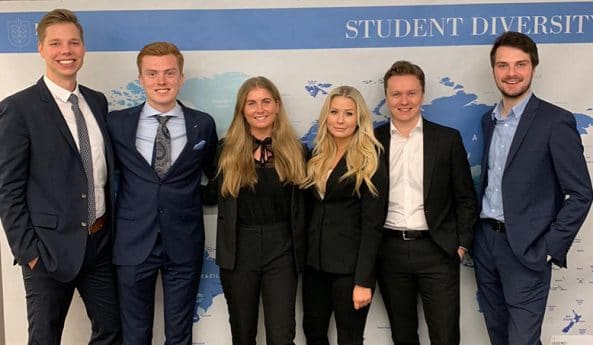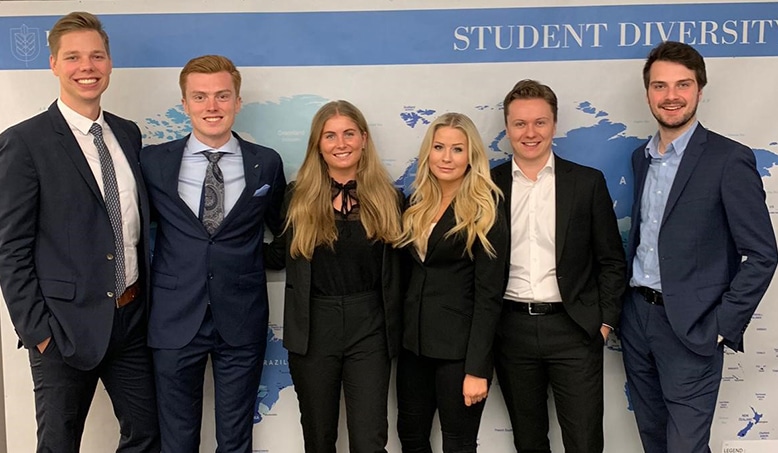Challenge learning is arguably the most important part of the Hult journey. As a student, you face real-world challenges: it might be to build your own company from scratch, or solve a business challenge for a big-name client over the span of two months. As a team of MIB (Masters in International Business) students taking on the Hult Business Challenge, Emma Nilsson, Einar Angeltveit, Johannes Kreuzen, Lars Johansen, Lina Lundkvist and I (photographed below) chose to tackle a problem given to us by GE Healthcare: nothing less than solving the underfunded, overstressed, but crucial future of their biggest client in the UK, the National Health Service (NHS).


The Hult curriculum helped prepare us in the months before – we learned to effectively analyze client needs, understand the requirements, boundaries, and possibilities, and henceforth develop a feasible, desirable, and viable solution to the client’s challenge. Besides the technical tools and skills, one of the main things we learned during our time at Hult – and what arguably we needed most to be able to win the challenge – was to work together as an international team. During the first few months at Hult, students are assigned international teams for group assignments. While everyone has some sort of international experience, it is a whole different story working as a team in which no three people come from the same continent. Adapting to each and everyone’s emotional and cultural needs, as well as navigating different approaches to discussion and conflict, was a great challenge. Most importantly though, in this beautiful maze of differences, you get to discover your own personal and cultural attributes – you might just learn more about yourself than you first wished.
“One of the main things we learned during our time at Hult…was to work together as an international team.”
This time around, we were allowed to opt for a team of our own choosing. As a team made up of Swedes, Norwegians, a German, and a Dutch, our cultural differences were comparably low but interestingly harder to overcome. In expecting that we, as a group of friends and assembled according to different skills, would work brilliantly together, we forgot one aspect of what international – arguably, any – teamwork is all about. You may have experience of someone’s culture, you may know someone’s language, field, or experience. What you don’t have is experience of this team’s unique setting, and the structure that develops.
“…in this beautiful maze of differences, you get to discover your own personal and cultural attributes”
We learned this the hard way while working to develop our automated assessment robot for GE (G.E.A.R.), that would allow the NHS to reallocate much needed nurses to treating patients rather than dealing with paperwork. Expecting smooth sailing, we were in fact met with many hours of debate about the right strategy, the correct understanding of the client needs, and the optimum approach to what would be both feasible and viable. Determined to give our best, we established a working mode that allowed us all to bring in our strengths and foster open discussion in an increasingly effective way.


By the time the midterm presentation came around we had anticipated client questions to guide the discussion towards the “highlights”. Approval or disapproval of these key areas allowed us to better understand the client’s pain points and ultimately deliver a real-world ready product that was aligned with the client’s strengths, needs, and future market developments. Fortunately, we were able to win the client for our solution, and thus the challenge for our team.
Lesson of the story: client needs come first, but always make sure to manage your expectations when forming a new team!
Ready to take on some challenge learning of your own? Find out more about Hult Masters programs by downloading a brochure.


